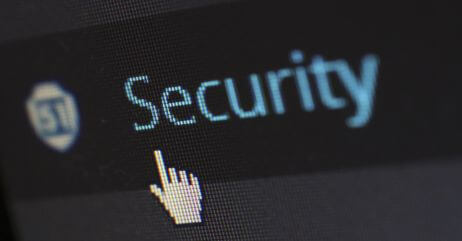Last updated on April 23rd, 2025 at 03:20 pm
Digital hygiene is the practices and habits that help you stay safe and maintain privacy while negotiating the internet. Here is everything you need to know.
Maintaining digital hygiene online is essential for the modern gentleman and of course, every individual who spends most of their time online.
From protecting your online privacy to presenting a professional digital appearance, the little steps you take can have a big impact on your online safety.
As we rely on digital platforms for communication, work, and entertainment, it’s important to protect personal information and guard against cyber threats.
From using strong passwords and enabling two-factor authentication to being mindful of the websites you visit, digital hygiene ensures that you minimize risks such as identity theft, data breaches, and malware attacks.
By adopting responsible online behaviors and staying informed about emerging threats, you can maintain a secure digital presence and protect your sensitive information in an increasingly interconnected world.
In this guide, we’ll discuss tips to help you move around the digital landscape with confidence and poise while safeguarding your data in the virtual space.
Key Takeaways
- Protect online privacy, use strong passwords, and stay updated on security risks to ensure personal and professional success.
- Use unique, strong passwords and password managers to safeguard accounts from unauthorized access and enhance convenience.
- Set social media privacy settings, avoid oversharing details, and be cautious with online transactions to protect personal information.
- Practice mindful behavior, and respectful interactions, and manage your online reputation to benefit personal and professional opportunities.
What is Digital Hygiene?
Digital hygiene refers to the set of practices and habits that you adopt to protect your online presence.
In an increasingly interconnected world, where technology plays a central role in our daily lives, maintaining digital hygiene has become not only important but a must.
As you engage with various digital platforms, you inevitably expose yourself to potential threats and vulnerabilities, making it crucial to understand and implement effective strategies to safeguard your personal information.
The concept of digital hygiene covers protective measures, including the use of strong and unique passwords, regular software updates, and vigilant monitoring of online accounts.
By applying these practices, you mitigate the risks associated with online interactions.
For instance, employing two-factor authentication and utilizing password managers can provide additional layers of security, thus reducing the likelihood of unauthorized access to sensitive accounts.
Related: Cyber Etiquette for Gentlemen
Consequences of Neglecting Digital Hygiene
Neglecting digital hygiene can lead to dire consequences. Identity theft, for example, is a pervasive issue that can arise from careless online behavior, such as oversharing personal information on social media or falling victim to phishing scams.
A single lapse in judgment can result in compromised personal data, leading to financial loss, emotional distress, and damage to one’s reputation.
Additionally, data breaches have become increasingly common, with many organizations reporting unauthorized access to their systems.
Such vulnerabilities can extend beyond mere inconvenience, potentially affecting not just individuals but also businesses and communities at large.
Related: How to be a Gentleman on Social Media
Secure Password Practices

In digital hygiene, secure password practices add to safeguarding personal information and maintaining overall online security.
A strong password is essentially the first line of defense against unauthorized access to accounts.
To create strong passwords, it is important to employ a combination of uppercase letters, lowercase letters, numbers, and special characters.
This complexity makes it harder for cybercriminals to decipher passwords through methods such as brute force attacks.
Avoid Reusing Passwords Across Multiple Accounts
It is important to avoid reusing passwords across multiple accounts. When the same password is utilized across different platforms, a security breach on one site can lead to a cascade of compromises on others.
To mitigate this risk, users should consider using unique passwords for each account, thus limiting the potential impact of a single breach.
Related: Gentleman’s Tips for Email Etiquette
Password Managers
One effective solution for managing the many complex passwords is the use of password managers.
These tools not only help in generating strong, random passwords but also securely store them, making it easier for users to maintain unique credentials without the burden of memorization.
Password managers encrypt the stored passwords, providing an additional layer of security that helps protect sensitive information from unauthorized access.
Two-factor authentication (2FA)
Moreover, incorporating two-factor authentication (2FA) into your online accounts is highly recommended.
This method adds an extra layer of defense by requiring a second form of verification, such as a text message code or authentication app, in addition to the password.
By using 2FA, users can enhance their security, as even if a password is compromised, the intruder would still require the second authentication step to gain access.
Related: How to Chat Like a Gentlemen
Related: Internet Dating Guide for Men
Protecting Personal Information and Managing Online Reputation

Safeguarding personal information is important to maintaining a secure online presence.
You must approach your digital interactions with rigor, considering the potential implications of sharing personal data across various platforms.
Avoid Disclosing Too Much Information on Social Media
One effective strategy is to minimize the amount of personal information disclosed on social media.
By being discerning with posts and updates, individuals can reduce your digital footprint.
For instance, avoiding the sharing of sensitive details, such as home addresses or specific locations, can act as a barrier against identity theft and unauthorized access to personal accounts.
This is how I have maintained my online safety since the internet came on board.
Privacy Settings
Privacy settings are a vital tool in protecting personal information on social media platforms.
Users should regularly review and adjust these settings to ensure they are sharing information only with trusted contacts.
Most social networking sites offer options to restrict visibility, allowing users to control who can view their posts and personal profiles.
Furthermore, it is prudent to utilize two-factor authentication whenever feasible, as this adds a layer of security against potential breaches.
Recommended: Cybersecurity Risk Assessment: Why Does it Matter?
Managing Online Reputation
Another essential aspect of personal information protection is the active management of your online reputation.
Individuals should regularly monitor their digital presence, as information posted online can influence personal and professional opportunities.
Search engines and social media platforms are cumulative archives, meaning that once something is posted, it can be challenging to erase its digital trace.
Therefore, conducting periodic searches of your name can help identify any unwanted or harmful content that may exist.
To cultivate a positive online image, engaging in proactive reputation management is crucial.
This may involve creating and sharing positive content, such as professional achievements, insights, or articles related to your field.
By doing so, individuals not only bolster their online persona but also ensure that positive representations of themselves overshadow any potentially negative information.
Related: How to Network Online as a Gentleman
Avoiding Digital Threats and Maintaining Etiquette

Maintaining digital hygiene is a must for safeguarding personal information and online interactions.
Malware
One of the primary threats you might face online is malware, which can infiltrate your systems through malicious downloads, infected websites, or via email attachments.
To mitigate the risks associated with malware, you should ensure you have strong antivirus software installed and regularly updated.
This software acts as a crucial line of defense against potential digital threats by scanning for and eliminating harmful programs before they can cause damage.
Phishing Attacks
Phishing attacks are another significant concern. These deceptive practices come in the form of emails or messages that appear to be from legitimate sources but are, in fact, designed to steal sensitive information.
To recognize these suspicious emails, you should look for warning signs such as poor grammar, unfamiliar sender addresses, or unsolicited requests for personal data.
Hovering over links to reveal their true destination can also be an effective strategy.
By remaining vigilant and skeptical of unsolicited communications, individuals can vastly improve their security against such threats.
Maintaining Digital Etiquette
In addition to safeguarding against threats, maintaining digital etiquette is essential for encouraging a respectful online environment.
This involves understanding the implications of your online behavior and the potential repercussions it may have on others.
Digital interactions require the same consideration and politeness as face-to-face communications.
Engaging constructively, being respectful, and acknowledging diverse opinions are vital aspects of digital etiquette that contribute to a healthier online community.
How Online Presence Affects the Personal and Professional Life of a Gentleman
The online presence of a gentleman can have a significant impact on both personal and professional life.
Personal life can be affected as online activities and interactions can be seen by friends, family, and potential romantic partners.
It can shape how others perceive you and influence personal relationships.
Similarly, in the professional sphere, employers, colleagues, and clients often search for information about individuals online.
A positive online presence can enhance professional opportunities, while a negative one can hinder career growth and damage professional’s reputation.
This is why you need to imbibe gentlemanly behavior all the time to always be on the good side of life.
To maintain a positive digital image, it is essential to:
Practice self-awareness: Be mindful of what is being shared, posted, or commented on online. Consider the potential impact of these actions on your image.
Think before sharing: Before posting or sharing anything online, think about how it aligns with personal values and reflects on character. It is crucial to avoid sharing offensive, discriminatory, or inappropriate content.
Be professional: Maintain a professional tone and demeanor in online interactions, especially in professional networks and forums. Use respectful language and engage in meaningful conversations.
Protect privacy: Maintain strong privacy settings on social media platforms to control who can view personal information. Avoid oversharing personal details that can be exploited or misused.
Build a positive online presence: Engage in constructive discussions, share valuable content, and contribute positively to online communities. This helps to establish a reputation as a reputable and knowledgeable individual.
Monitoring and addressing negative online content involves:
Regularly searching for information: Regularly search for your name and related keywords to stay informed about online content related to oneself.
Responding professionally: If one comes across negative content, it is essential to respond calmly and professionally. Avoid escalating conflicts or engaging in heated arguments.
Seeking professional help: For severe cases of online attacks or negativity, seeking professional help like reputation management or legal guidance is important, potentially involving legal action for defamation or harassment.
Addressing mistakes and apologizing: Address online mistakes or criticism with respect and responsibility. Apologize, rectify, and show growth for reputation repair and restoration.
Related: How to Develop a Gentleman’s Online Persona
Practicing Safe Browsing Habits
Safe browsing habits keep you safe from running into problems online especially as it concerns websites and your personal information.
Here are tips for practicing safe browsing habits as a gentleman who values digital hygiene:
Keep software updated: Regularly update operating systems, web browsers, and security software to ensure access to the latest security patches and fixes.
Use secure connections: Always browse websites using HTTPS protocols, especially when handling sensitive information like passwords or credit card details. Check for the padlock icon in the browser’s address bar.
Verify website reputation: Be cautious while visiting unfamiliar websites. Check for user reviews, credibility, and secure payment options before sharing personal information or making any purchases.
Being Careful with Email Attachments and Links
Being careful with your email attachments is another way to avoid malware and phishing to observe digital hygiene.
Below are some tips to keep you on the right path:
Be Suspicious of unknown senders: Avoid opening emails or clicking on links from unknown or suspicious sources. Verify the sender’s identity before downloading any attachments or visiting suggested links.
Hover before clicking: Hovering the mouse cursor over a link in an email will often reveal the actual destination URL. Be cautious of misleading links that redirect to different websites than expected.
Scan email attachments: Before opening any email attachment, scan it with antivirus software to detect and eliminate potential malware.
Limiting Digital Distractions as a Way to Observe Digital Hygiene

Limiting digital distractions is a crucial aspect of practicing online hygiene every gentleman should imbibe.
Digital distractions are the various interruptions or diversions caused by digital devices, such as smartphones, computers, or tablets.
These distractions can often disrupt your focus, productivity, and overall well-being.
To maintain a healthy relationship with technology, it’s important a gentleman recognizes the negative impacts of excessive screen time, sets boundaries, and manages notifications, as well as utilizes time-management tools and applications.
Here are tips to curtail digital distractions:
Recognizing the Negative Impacts of Excessive Screen Time
Excessive screen time can have several negative impacts on your life. It can lead to decreased productivity, lack of focus, reduced cognitive abilities, and increased stress levels.
Excessive use of social media or constant exposure to online content can also contribute to feelings of anxiety, loneliness, and inadequacy.
Recognizing these negative impacts helps you understand the importance of limiting digital distractions and finding a healthy balance between your online and offline activities.
Setting Boundaries and Managing Notifications
Setting boundaries is an effective way to manage digital distractions. This involves establishing specific rules or guidelines for device usage.
For example, you can designate certain times of the day as “device-free” or set limits on the amount of time spent on specific apps or websites and stick to it as a gentleman.
Additionally, managing notifications can help reduce distractions. Turning off unnecessary notifications or selectively allowing only important ones can prevent constant interruptions and allow better focus on tasks at hand.
Utilizing Time-Management Tools and Applications
Various time-management tools and applications can assist in maintaining digital hygiene.
These tools help in monitoring and regulating screen time, managing tasks, and organizing schedules.
For instance, productivity apps with features like ‘focus mode’ or ‘block distracting websites’ can help limit distractions during work or study sessions.
Additionally, calendar or task management applications can aid in organizing digital activities, setting reminders, and allocating specific time slots for different tasks.
By implementing these strategies and utilizing appropriate tools, a gentleman can effectively limit digital distractions, create healthy boundaries, and manage their time online.
This practice of digital hygiene promotes a balanced and mindful use of technology, leading to increased productivity, improved focus, and enhanced overall well-being.
Discussing Digital Hygiene with Others
Discussing internet safety with others involves having conversations and providing guidance on how to maintain a healthy and secure digital life.
It aims to raise awareness about the importance of practicing good digital habits and protecting oneself against online threats.
1. Encouraging Friends and Family
- Promote safe online behaviors by explaining risks and emphasizing strong passwords, regular updates, and caution with links and downloads.
- Promote a network of digitally aware individuals to collectively combat cyber threats.
2. Leading by Example
- Demonstrate good digital hygiene and share personal experiences to highlight the importance of internet safety.
- Use relatable stories of online fraud or identity theft to inspire others to adopt safe practices.
3. Recommending Helpful Resources
- Share trusted websites, password managers, anti-malware software, and VPNs.
- Empower others to protect their online presence with valuable tools and guidance.
Conclusion
Practicing good digital hygiene is imperative for gentlemen in today’s digital age.
By following these tips, you as a man can protect your online privacy, prevent cyber threats, and maintain a healthy relationship with technology.
Regularly updating passwords, being cautious of phishing attempts, and being mindful of online activities are simple yet effective ways to ensure digital safety.
Moreover, limiting screen time, setting boundaries with technology, and prioritizing real-life connections contribute to a well-rounded lifestyle.
Frequently Asked Questions
How do you have good digital hygiene?
Good digital hygiene involves practicing healthy habits while using digital devices, such as regularly updating software, using strong passwords, being cautious of phishing attempts, and managing online privacy.
What are the good cyber hygiene practices which could help us to stay safe online?
Good cyber hygiene practices include using strong and unique passwords, enabling two-factor authentication, regularly updating software and antivirus programs, being cautious of suspicious emails or links, and regularly backing up data.
What are the 4 basic cyber hygiene tips?
The four basic cyber hygiene tips are: using strong and unique passwords, regularly updating software and devices, being cautious of phishing attempts, and regularly backing up important data.
What are 4 tips for keeping safe online?
Four tips for keeping safe online are: using strong and unique passwords, being cautious of suspicious emails or links, regularly updating software and devices, and being mindful of sharing personal information online.
References:
- https://www.linkedin.com/pulse/grooming-men-digital-world-jagmohan-singh-rishi-ceos-coach?trk=articles_directory
- https://www.arcstone.com/digital-hygiene/
- https://www.everydayhealth.com/mens-health-pictures/essential-grooming-rules-for-guys.aspx
- https://indianexpress.com/article/lifestyle/health/regular-grooming-healthy-eating-hygiene-tips-men-7863002/
- https://www.slideshare.net/slideshow/personal-hygiene-importance-and-grooming-checklist-for-men-women/180689025
Pyo Merez is a men’s lifestyle enthusiast and writer about the gentleman’s place and impact on society. Raised by a distinguished gentleman dad, he offers unique insights into how the mind of a gentleman works and how societal norms shape gentlemen’s identity and vice versa.
Through his insightful articles, Pyo taps into the depths of gentleman culture to provide perspectives on etiquette and manners in modern society.

